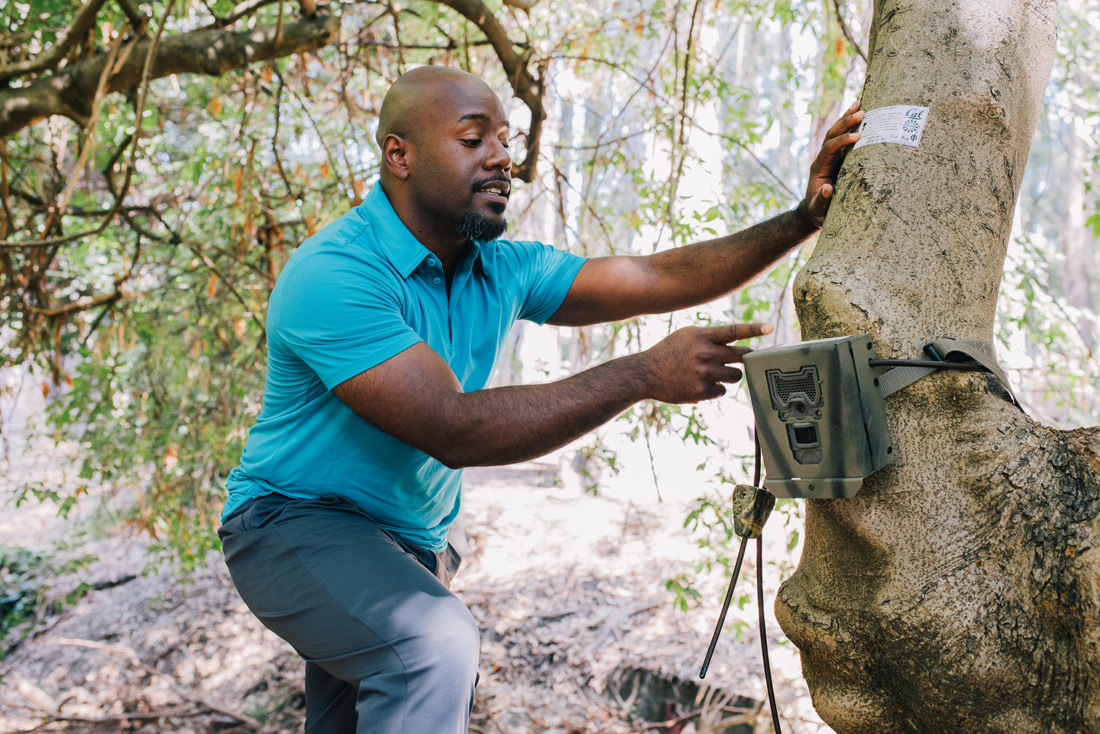
Professor Chrisopher Schell demonstrating a tree-mounted camera trap.
Scientists at UC Berkeley are joining a new three-year effort to further urban ecology research across California in collaboration with community scientists and policymakers.
The California Urban Nature Alliance will coordinate and enhance biodiversity and environmental equity research in San Diego, Los Angeles, and the Bay Area. The project is led by the San Diego Natural History Museum (The Nat) and includes researchers from the Department of Environmental Science, Policy, and Management at Berkeley (Christopher Schell and his lab), the Natural History Museums of Los Angeles County, and the California Academy of Sciences.
“This new initiative is transformative,” said Schell, an urban ecologist who studies how wildlife adapts to life in cities and other urban environments. “This coalition presents an inspiring approach to reconnecting people with nature in their own backyards while working with communities to re-envision and regenerate our shared ecosystems.”
Supported by the Gordon and Betty Moore Foundation, the project will fund a new postdoctoral scholar in the Schell Lab who will focus on collecting, curating, and analyzing biodiversity monitoring data collected by the lab’s network of camera traps operated throughout the Bay Area.
Across the Alliance, researchers will work to elevate community involvement in assessing and preserving urban nature and provide a model for collaborations across the United States. It will bolster local efforts to improve parks and open spaces, conserve urban green spaces, and demonstrate how wins for wildlife are also wins for people.
“Natural history museums, and particularly the members of this alliance, are uniquely suited to lead this type of work,” said Judy Gradwohl, president and CEO of The Nat. “We are committed to conservation in our local regions, and independently have designed urban green space initiatives.”
Among the projected outcomes are general educational programming about the value of green spaces to humans and wildlife; a better understanding of the importance of urban green spaces to California's 30x30 initiative and climate resiliency; recognition of urban green spaces as a critical gateway to increasing environmental values; and research that drives new scientific findings and informs conservation action.
Continuously sharing ideas and techniques will strengthen each region-specific effort and lay the groundwork for future collaborations that benefit the state.
Learn more about the Alliance at the San Diego Natural History Museum website.
